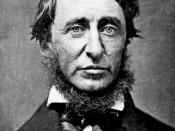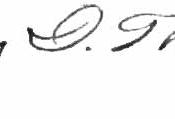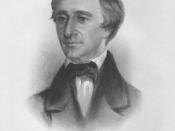If I were asked who my favourite Western Zen philosopher was, without any
hesitation, I would declare it to be Henry David Thoreau. Although he knew in translation
the religious writings of the Hindus, it may be unlikely that Henry David Thoreau ever
studied the teachings of the Zen Masters. Even then, the insight within his own personal
writings would irrefutably make him master of his own temple. The wisdom found within
Thoreau's Walden can be clarified through Zen Buddhist beliefs and ideas as the two seem
to typically compliment each other.
Where, you might ask, does religion fit into the travelling adventures of Henry
David Thoreau? Religion has been a part of the literary tradition from the very start.
Some of the first books ever produced were handwritten copies of the Bible. Pamphlets,
poems, odes, and epics throughout the centuries have continued to reflect religious
content. I have also read insightful essays about the hidden Christian Symbolism in A.
A.
Milne's Winnie-the-Pooh. Well, why not the presence of Zen Buddhism within the
teachings of Thoreau's Walden? In accordance with the history of literature, one might
say 'Why not?'; in accordance with Walden's content, I would say, 'I couldn't see it
being any other way.'
What is Zen Buddhism anyway? In the book Zen Buddhism, D.T. Suzuki says that
'Zen in its essence is the art of seeing into the nature of one's own being, and it points the
way from bondage into freedom' (3). In the theory of Zen, our bodies contain a spiritual
form of energy. When this energy is consciously tapped, we will be aware of all the
underlying impulses and desires of our heart. This 'freedom' will cause us to experience
Kensho, (seeing into one's own nature), thus becoming happier and more loving to those...


